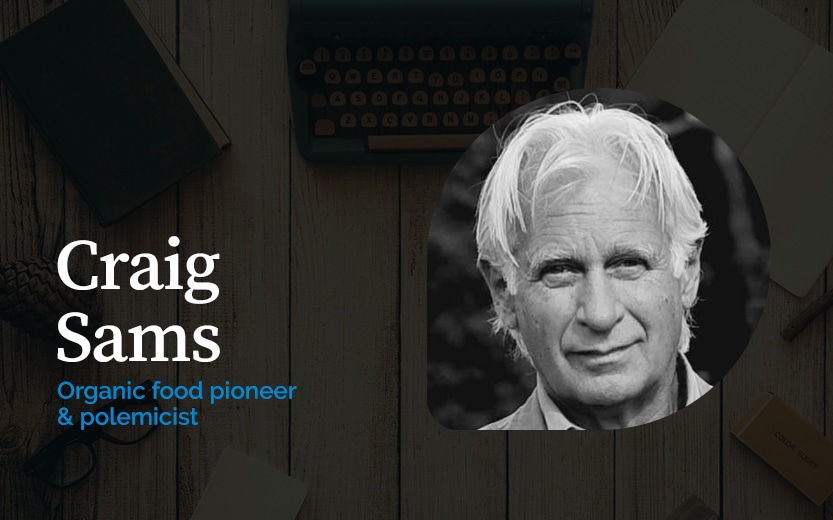After a century of destructive conflict a new battle is about the begin – the one to save Planet Earth. It’s the war we really can’t afford to lose, writes Craig Sams.
“I’m the King of the castle – and you’re a dirty rascal”
Every since my playground days I’ve been aware of who holds the high ground and who is a serf. In the olden days it was the legacy of your birth that determined your future chances. In our corporate world ‘legacy industries’ cling to their power in the face of change.
Economists bat on about ‘creative destruction’ in capitalism, but there are still way too many gigantic corporations that are dinosaurs; fat and obsolete but refusing to just lie down and be creatively destroyed. They’re the ‘kings of the castle’ and they’re not about to let any perceived ‘dirty rascals’ impinge on their power. Sometimes creative destruction does work. A disruptive technology like a smartphone can instantly make obsolete regular cell phones, PDAs, MP3 players, cameras, wrist watches, calculators, voice recorders and game boxes. Apple nearly destroyed IBM.
In Victorian times Britain and France went on a colony-building binge, demolishing the Ottoman Empire and the Austro Hungarian Empire in order to take over their territory. This led in 1914 to the ‘War to end all Wars’ that we commemorate. Hindsight shows it was the start of a 100 Years War…WWI was followed by a lot of mini wars, then WWII, then the Korean War, the Vietnam War, the Lebanon invasion, the Iraq war, Afghanistan, to name a few. NATO is at the heart of most of these wars
The NATO conference agenda recently called for increased military expenditure now that the EU economy seems to be finally. Where would the money go? To arms manufacturers in the US and Britain and to terrorists who we train and arm before they go over to the other side, creating new conflicts.
War of course isn’t the only legacy industry that made all its money out of a situation and can’t move on. .
Adam Smith nailed it in The Wealth of Nations when he wrote: “People of the same trade seldom meet together, even for merriment and diversion, but the conversation ends in a conspiracy against the public, or in some contrivance to raise prices.”
Who are the other dinosaurs that have sunk their fangs into the taxpayer’s neck and are sucking out our hard earned money to pay their salaries and remunerate their shareholders?
The pharmaceutical industry depends on widespread disease. Many diseases arise from environmental reasons: lead in petrol, hormones in meat, pesticide residues in food and water, side effects of drugs, additives in food and toiletries and poor quality food grown in depleted soils. Prevention is the best cure, but where’s the profit in that? If everyone was healthy Pharma would be in a very bad place.
Agribusiness depends on depleted soils. Once you’ve knocked the life out of soil with nitrates, fungicides, insecticides, nematicides and other toxic material the only way a farmer can get a crop is by buying in ever more chemicals. Farmers have to do what the government pays them to do, so Big Ag leans on government to make sure that the subsidy system encourages farmers to grow biofuels instead of food and to farm for production rather than sustainable productivity. They spend a lot of money fighting off real progress.
The ‘disruptive technology’ in agriculture is organic farming – like the smartphone it delivers a number of products in one package: sustainable yields, healthier soils, lower pollution, healthier people, reduced global warming, more biodiversity and far less expenditure on subsidies for expensive poisons and chemical fertilisers.
The oil industry get massive subsidies masked as exploration grants to make them seem more competitive than they really are. Private energy generation is discouraged, but it’s more resilient and cheaper.
But the biggest legacy industry of all is government – not only does it collaborate with the other legacy industries to protect their obsolete positions, the legacy industries collaborate with government to keep them dishing out the dosh and keeping their upstart competitors at bay.
Silicon Valley blew a hole in a number of legacy industries: big computers, expensive telephony, monopolised media and communications, to name a few. Now the Silicon Valley investors are investing big time in what they call ‘AgriTech.’ These investors don’t care for heavy-handed government regulation and can see an opportunity to cash in on food production in a world where daft ideas like biofuels, GMOs, subsidies and chemicals are making less and less sense. Organic farming and agroecological systems are where the smart investment money is heading. Backed by technology, organic farming can wipe the floor with the dinosaurs like Monsanto – they’ll fight back but there is a tidal wave of smart money that is betting against them
World War Three will be the war to save planet Earth. This is one we can’t afford to lose.
 By Craig Sams
By Craig Sams
Organic food pioneer and polemicist Craig Sams is Britain’s best known natural food pioneer. He is the founder of Green & Blacks, a former Soil Association chairman and the author of The Little Food Book.











